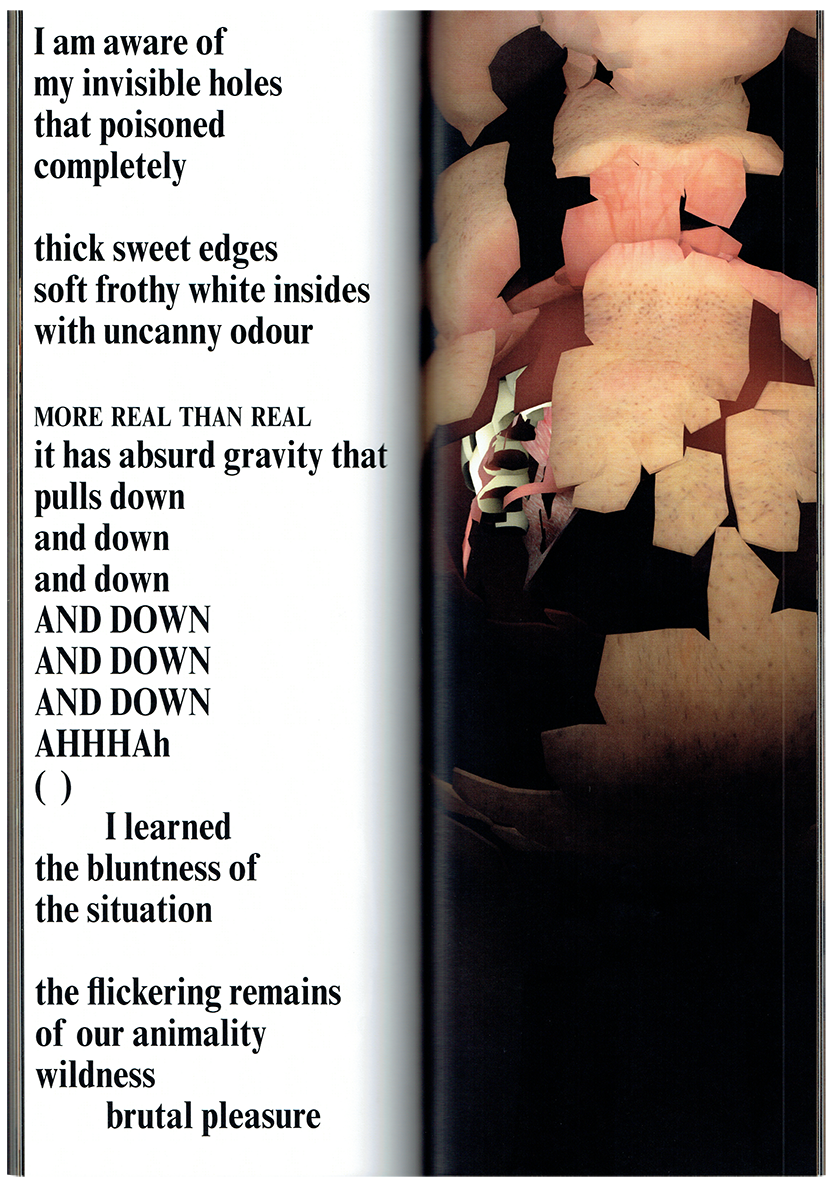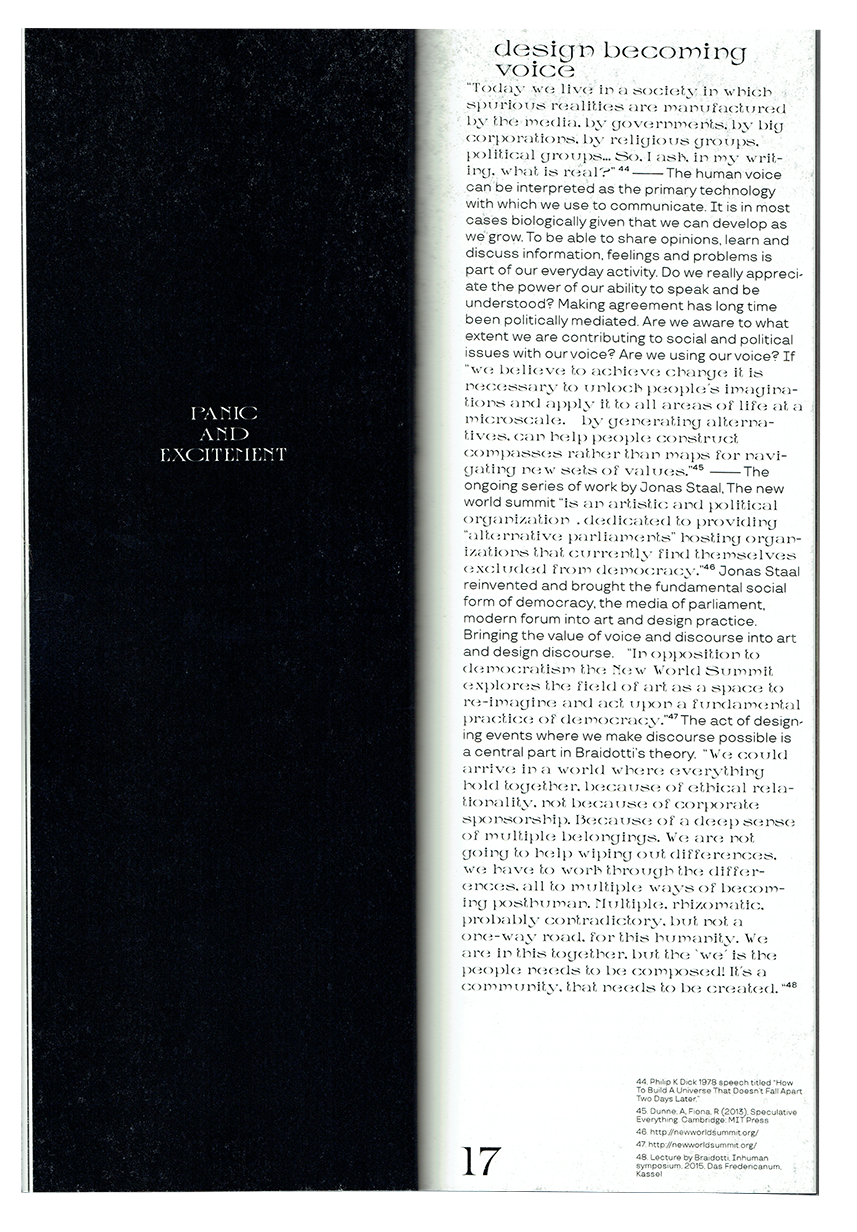video-installation
2017
2017
The confession of the flesh (excerpt), 2017
How to manifest the importance of the flesh (matter) in times of radical change? The transformation of the planetary condition is certain as the ecological, political, social and psychological crises suggests. The current belief in human progress and exceptionalism has to be questioned. We ought to exceed our anthropocentric view and remind ourselves that concepts, ideas are made out of flesh and bones.
In The confession of the flesh we confront the mind with the matter to point out the extreme disconnection between them, opening up the space of verticality. I attempt to invoke what we have forgotten and remind ourselves what we have been altering is ourselves. I urge the visitors to rethink their position towards what we have taken for granted is eventually in a constant, radical change.
The confession of the flesh is a video installation that departs from the posthuman theory, placing catastrophe, crisis, decay as a defining condition in today's pessimistic techno-capitalist status quo. It attempts to envision a deep psycho-analytical journey, where nothing is certain, nothing can be taken for granted, everything is in constant transformation. The mouth represents the junction between the mind and the body, a contradiction between concept and matter, the channel that forgets its own material significance, therefore it is wounded. The hands are the metaphor of the monstrous activity of mankind that actually erases itself. The elevator embodies the significance of the vertical, becomes the vehicle of the posthuman, being intimately acquainted with the unconsciousness and conscience. The video installation is an uncomfortable revelation of the hopelessness that designers have to sorrowfully acknowledge in times of uncertainty.
Cast:
Written, directed, animated: Márton Kabai
Co-director, sound editing: Natela Lemondzhava
Voice-actor: Mabel Rae
Sound design: Mári Mákó & Rozi Mákó (Committee)
Exhibited
In The confession of the flesh we confront the mind with the matter to point out the extreme disconnection between them, opening up the space of verticality. I attempt to invoke what we have forgotten and remind ourselves what we have been altering is ourselves. I urge the visitors to rethink their position towards what we have taken for granted is eventually in a constant, radical change.
The confession of the flesh is a video installation that departs from the posthuman theory, placing catastrophe, crisis, decay as a defining condition in today's pessimistic techno-capitalist status quo. It attempts to envision a deep psycho-analytical journey, where nothing is certain, nothing can be taken for granted, everything is in constant transformation. The mouth represents the junction between the mind and the body, a contradiction between concept and matter, the channel that forgets its own material significance, therefore it is wounded. The hands are the metaphor of the monstrous activity of mankind that actually erases itself. The elevator embodies the significance of the vertical, becomes the vehicle of the posthuman, being intimately acquainted with the unconsciousness and conscience. The video installation is an uncomfortable revelation of the hopelessness that designers have to sorrowfully acknowledge in times of uncertainty.
Cast:
Written, directed, animated: Márton Kabai
Co-director, sound editing: Natela Lemondzhava
Voice-actor: Mabel Rae
Sound design: Mári Mákó & Rozi Mákó (Committee)
Exhibited



Intensive Spaces of Becomings Have to Be Opened,
Self Published in 2018